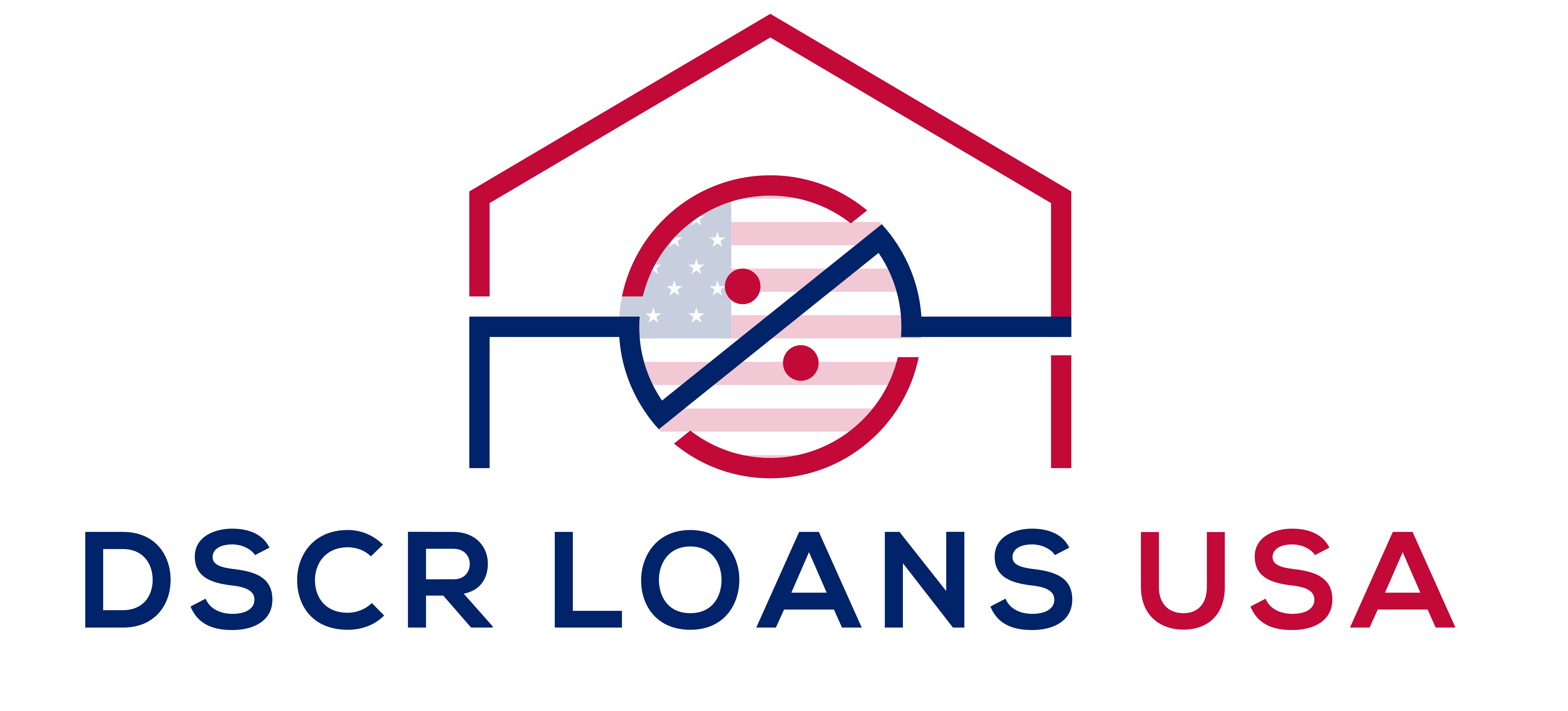Top 10 Best States for Real Estate Investing in 2024
Seeking the best states for real estate investing but not sure where to start?
Look no further. Avoid the fluff and jump straight into learning which states stand out in the 2024 real estate market and why, including factors like economic performance, population trends, and favorable landlord laws. This article provides the insights you need without spoiling the specifics.
Key Takeaways
- Investors find attractive real estate opportunities in states like Texas, Florida, North Carolina, Tennessee, and Georgia due to strong rental demand, population growth, and economic stability.
- The best states for landlords, including Texas, Indiana, and North Carolina, offer favorable legal conditions that support property owners, such as easier eviction processes and the flexibility of rental rates.
- Effective real estate investment considers job growth, population trends, and rental market health; meanwhile, potential investors must navigate tax implications, rental property regulations, and emerging markets while avoiding common investment mistakes.
Related:
Top States for Real Estate Investments

Real estate investing is not a game of chance; it’s a strategic endeavor that requires insight into where the market’s pulse beats the strongest. The states that have risen to the top in 2024 share a common thread: they boast a thriving rental market, witness rapid population growth, and have economies that stand as pillars of stability. It’s in these states that owning rental property isn’t just a venture; it’s a veritable investment in a prosperous future.
Some of the top states for real estate investing in 2024 include:
- Texas
- Florida
- North Carolina
- Tennessee
- Georgia
These states offer a combination of strong rental demand, population growth, and economic stability, making them attractive options for real estate investors.
From the sun-kissed horizons of warmer weather states to the bustling streets of major cities, the real estate landscape of 2024 is a mosaic of opportunity. But which states are the crème de la crème for real estate investors? Let’s explore the regions where the real estate market is in full bloom, and conditions are primed for investors to plant the seeds of their success.
Georgia: The Peach State
Georgia, affectionately known as The Peach State, offers a sweet spot for real estate investors. Its urban jungles, like Atlanta, and its charming historic cities, such as Savannah, are experiencing a population surge, creating a robust demand for rental properties. This demand is fertilized by a cost of living that’s gentle on the wallet, yet the state doesn’t skimp on job opportunities, especially in flourishing industries that keep the economy buzzing. Some key reasons to invest in real estate in Georgia include:
- Population surge in urban areas like Atlanta and charming historic cities like Savannah
- Strong demand for rental properties
- Affordable cost of living
- Abundance of job opportunities in flourishing industries
The rental market here isn’t just growing; it’s blossoming, thanks to a consistent influx of residents drawn to Georgia’s economic vitality and affordable lifestyle. For investors, this translates into a steady stream of rental income and the tantalizing prospect of long-term property appreciation. Owning rental property in Georgia isn’t just a wise choice—it’s a strategic investment in a state where the real estate market is as ripe as the peaches it’s famous for.
New Jersey: The Garden State
Step into The Garden State, and you’ll find a real estate market where the soil is rich with potential. New Jersey boasts a high median income, which, like a well-tended garden, yields robust rental income for property owners. This lush landscape is further nurtured by low vacancy rates, ensuring that rental properties here are rarely left barren.
However, investors must navigate New Jersey’s terrain with caution, as the state carries a high tax burden that can weigh down returns. Still, with its strong property appreciation values, New Jersey remains an attractive destination for those willing to tend to their investments diligently, pruning away the challenges to reap a bountiful harvest.
Texas: The Lone Star State
Texas, the Lone Star State, shines brightly on the map of real estate investments. Its robust economy is a beacon, attracting a constant stream of new residents and ensuring a high demand for rental properties. Investors find solace in its:
- low tax burden, which allows them to enjoy the fruits of their investments without the bitter taste of excessive costs
- diverse and growing job market, providing stability and opportunities for tenants
- affordable housing market, making it easier to find profitable investment properties
- strong population growth, ensuring a steady pool of potential renters
- favorable landlord laws, protecting the rights of property owners
All of these factors make Texas an attractive destination for real estate investors.
The state’s population growth is not just a trickle; it’s a torrent, with cities like Houston and Dallas leading the charge. For real estate investors, Texas represents a land of opportunity, where the promise of rental demand is as vast as the state itself, and the economic climate is as warm as its weather.
Minnesota: The North Star State
Minnesota, known as The North Star State, guides investors to a real estate market that’s as stable as it is affordable. Here are some key reasons why investing in Minnesota real estate is a great opportunity:
- The median home cost shines below the national average, offering a beacon of affordability.
- The state’s diverse economy, with robust sectors like healthcare and education, provides a stable backdrop for investment properties.
- Urban and suburban areas in Minnesota are favored by young professionals, making them ideal locations for investment.
But it’s not just the young professionals that create a constellation of demand; the state’s colleges and universities add to the allure, ensuring a steady stream of quality tenants. With a rental vacancy rate that’s comfortably low, Minnesota offers investors a clear path to build a prosperous and stable real estate portfolio.
New Hampshire: The Granite State
New Hampshire, The Granite State, is as solid an investment location as its nickname suggests. With a rental market that’s seen high rent value growth and low vacancy rates, investors can find a stable and lucrative foothold in this rocky terrain. The state is bolstered by a high median household income, implying that tenants have the capacity to support a growing rental market.
In New Hampshire, the investment properties aren’t just stones; they’re gems waiting to be polished by savvy investors. The state’s economic stability and attractive rental market make it a shining example of where to invest in real estate for those looking to build a robust portfolio.
Landlord-Friendly States for Investors

Venturing into the real estate landscape, investors often seek territories where the laws of the land favor their cause. Landlord-friendly states offer a legal climate that warms the hearts of property owners, providing advantages that can turn a good investment into a great one. In these states, the winds of regulation blow in favor of landlords, offering a favorable environment that can significantly impact the success of a rental property portfolio.
Some examples of landlord-friendly states include:
- Texas
- Florida
- Indiana
- Tennessee
- Georgia
Investing in real estate in these states can provide you with a more favorable legal environment and increase your chances of success.
From the simplicity of eviction processes to the flexibility in setting rental rates, these states understand that a healthy real estate market thrives when property owners have the upper hand. Let’s explore the states that roll out the red carpet for landlords and make owning rental properties a less taxing endeavor.
Indiana: The Hoosier State
Indiana, The Hoosier State, presents a cornucopia of opportunities for landlords. The state’s affordable housing market is a magnet for renters, creating a fertile ground for rental income. Here, the landlord-tenant laws are as accommodating as a Midwestern welcome, offering up to 45 days for security deposit evaluations and other landlord-friendly regulations.
With a legal framework that supports property owners, Indiana stands out as an attractive location for investors. The state’s warmth extends beyond its friendly regulations, promising a nurturing environment for those who choose to grow their real estate investments within its borders.
Colorado: The Centennial State
Colorado, The Centennial State, is where the peaks of landlord favorability meet the skies of investment potential. Here, the eviction process is streamlined, much like the state’s famed ski slopes, allowing property owners to navigate tenant issues with ease. Law enforcement practices demonstrate a clear preference for landlords, ensuring that the rules of the rental game are played on a field that tilts in their favor.
For real estate investors, Colorado offers more than just breathtaking vistas; it provides a legal landscape that allows them to breathe easily, knowing that their investments are protected by a state that values their contributions to the housing market.
North Carolina: The Tar Heel State
North Carolina, The Tar Heel State, stands as a testament to the harmony that can exist between economic stability and a landlord-friendly atmosphere. Cities like Charlotte and Raleigh are expanding their horizons, welcoming a surge of renters that fuels the rental market’s potential. The state’s policies pave the way for landlords to enjoy the fruits of their labor without the worry of restrictive regulations.
Affordable housing and a robust economy are the twin pillars that support the real estate market in North Carolina. For investors, this translates to a landscape ripe with possibilities, where the ground is as fertile for growing rental income as it is for nurturing long-term investment success.
Factors to Consider When Choosing an Investment Location
As a real estate investor, setting your sights on a location is akin to a miner searching for gold; it requires a keen eye and a deep understanding of the terrain. The gleam of job growth, the shimmer of a thriving rental market, and the sparkle of population growth are the key indicators that signal the presence of hidden treasure in the real estate realm.
Cities like Austin and Charlotte are beacons of job growth, while markets like Raleigh and Phoenix thrive with an increasing population and high-paying job sectors. To strike gold in real estate investing, one must consider these vital signs, as they are the pulse that drives the market’s vitality and the promise of a lucrative investment.
The Importance of Rental Property Regulations
In the world of real estate, the rule of law is as critical as the foundation upon which a house is built. Rental property regulations form the bedrock of the landlord-tenant relationship, and understanding these laws is not just recommended; it’s imperative. For landlords, knowing the ins and outs of these regulations is the armor that protects their investment from the arrows of legal disputes.
The landscape of rent regulation practices varies widely from state to state, and savvy investors must navigate these terrains with caution. Compliance with state laws ensures that your investment property remains a source of pride, not a cause for concern. With the right legal advice and due diligence, landlords can ensure their investment stands on solid ground, immune to the tremors of potential legal complications.
Tax Considerations for Real Estate Investors

The aphorism “nothing is certain except death and taxes” holds a kernel of truth for real estate investors. Tax considerations are the specters that haunt the halls of property investment, and understanding them is the key to ensuring they don’t become ghosts that haunt your profits. States with low property taxes or no state income tax offer a sanctuary where the tax burden is lighter, allowing for a heavier purse of returns.
From the sun-drenched beaches of Georgia to the rolling hills of Tennessee, states are competing to offer the most favorable tax climates for investors. These incentives are not mere tokens; they’re significant factors that can sway the scales of profitability in your favor. By partnering with tax professionals and financial advisors, investors can navigate these waters to find the most tax-friendly shores for their investment properties.
Emerging Markets to Watch
There are markets that simmer with potential and others that are on the cusp of boiling over. As an investor, keeping an eye on emerging markets is like watching the horizon for the first light of dawn. Cities like Nashville, San Antonio, and Jacksonville are the early rays of a rising sun, signaling growth, diversity, and opportunity in the real estate market.
The vibrancy of these emerging markets is fueled by economic growth, affordability, and a cost of living that beckons to renters and buyers alike. By identifying key metrics and trends, investors can position themselves at the forefront of these burgeoning markets, ready to harness the energy of their ascendancy.
Overrated Real Estate Investment Locations
However, not all that glitters is gold, and in the vast expanse of real estate, there are mirages that can lead investors astray. Overrated investment locations are those that, despite their allure, are burdened by high property taxes, languid population growth, or rental markets that fail to captivate. States like South Dakota, Wisconsin, and Illinois exemplify these less desirable investment climates, where the promise of prosperity is overshadowed by the reality of diminishing returns.
It’s within these markets that the seasoned investor must tread carefully, discerning the true value from the facade. By understanding the pitfalls of high property taxes and unfavorable rental conditions, one can steer clear of these investment quagmires and navigate towards more fertile grounds.
Avoiding Common Real Estate Investment Mistakes
The road to real estate success is paved with the lessons learned from the missteps of others. Common investment mistakes are the potholes that can derail even the most promising ventures. Whether it’s underestimating expenses or neglecting property maintenance, these errors can be costly. But fear not, for they are also avoidable with due diligence and a keen sense of foresight.
By employing thorough market research and entrusting property management to reliable hands, investors can mitigate these risks. Some key strategies to consider include:
- Conducting thorough market research before making any investment decisions
- Hiring a reputable property management company to handle day-to-day operations and tenant management
- Regularly maintaining and updating your property to ensure its longevity and value
- Staying vigilant and proactive in monitoring market trends and adjusting your investment strategy accordingly
By following these strategies, you can navigate the real estate landscape with the confidence and acumen of a seasoned explorer.
The Benefits of Hiring a Property Management Company
Navigating the seas of real estate investment doesn’t require going it alone. Hiring a property management company is akin to enlisting a seasoned captain for your ship; it brings expertise, experience, and efficiency to the helm. These companies serve as a lighthouse, guiding tenants through the fog of issues and complaints, ensuring their satisfaction and, in turn, their continued patronage.
The advantages of a property management company include:
- Tenant relations
- Stewardship of your investment
- Cultivating rental income stability
- Enhancing the appeal of your properties with modern amenities
For the investor, this means peace of mind and the freedom to focus on expanding their real estate horizons.
Summary
As we draw the map of our real estate investment journey to a close, it’s clear that the landscape of 2024 offers a rich tapestry of opportunities for the astute investor. From the thriving markets of Georgia and Texas to the landlord-friendly havens of Indiana and Colorado, each state presents unique prospects for growth and prosperity. By heeding the lessons of tax considerations, avoiding common mistakes, and perhaps enlisting a property management company, investors can navigate this terrain with the confidence and skill of a seasoned explorer. May this guide serve as your compass, leading you to the treasures that await in the world of real estate investing.
Frequently Asked Questions
What makes Georgia a standout state for real estate investment in 2024?
Georgia’s appeal as a standout state for real estate investment in 2024 is rooted in its growing urban and suburban areas such as Atlanta and Savannah, offering a combination of population growth, high rental demand, lower living costs, and strong job opportunities, which create a conducive environment for consistent cash flow and property appreciation. Check out our guide to getting a DSCR loan in Georgia if you are interested in this great state.
How do landlord-friendly laws in states like Indiana and Colorado benefit real estate investors?
Landlord-friendly laws in states like Indiana and Colorado benefit real estate investors by providing simplified eviction processes, no caps on late fees or security deposits, and legal advantages in setting rental rates and handling legal disputes over lease violations, ultimately making it easier to manage properties and protect their investment.
Are there any emerging real estate markets that investors should keep an eye on?
Yes, investors should keep an eye on emerging real estate markets such as Nashville, Tennessee, and San Antonio, Texas due to their growing job opportunities and metropolitan expansion.
What are some overrated real estate investment locations, and why should investors be cautious?
Investors should be cautious about overrated real estate investment locations such as South Dakota, Wisconsin, and Illinois due to high property taxes, slow population growth, and unfavorable rental market conditions, which can lower profitability significantly.
What are the key factors to consider when choosing a location for real estate investment?
When choosing a location for real estate investment, it’s important to consider factors such as job growth, rental market performance, population growth, gross rental yield, housing market dynamics, and economic indicators for stability. These elements can significantly impact the viability of your investment.
Ready for More Great Tips and Information? Join Our Email List Today!


Leave a Reply